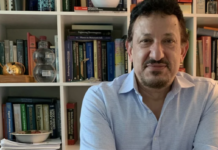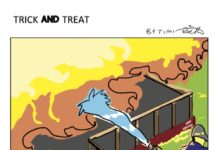Several loaves have been created in the University of Waterloo ecology lab – not of bread, but of soap!
Soap-making workshops at the ecology lab have returned, run in partnership with the UW sustainability office.
“The ecology lab on campus is a student resource to help undergraduate and graduate UW students with any questions regarding ecology. But that’s not all we do! We hold a variety of different workshops throughout the year, including our soap workshop. It’s definitely our most popular workshop and this year we had an amazing turn out!” explained Melissa Frew, an assistant at the ecology lab.
Soap making has a long history, with the first written recipes originating nearly 5,000 years ago in Greece, Mesopotamia, and Egypt.
Patricia Huynh, the sustainability projects manager at the sustainability office, led the workshop. “Soap making blends my interests in chemistry, art, and sustainability. I’ve had really meaningful conversations with people about the cosmetic industry, and low-waste living over the years, and I’ve really grown on my own sustainability journey,” she said.
Soap is created by combining lye, water, and fats, with the optional addition of essential oils. Once combined, the ingredients are poured into a soap pan, where the loaf takes shape.
After 24 hours the loaf can be cut into bars. Next, the saponification and curing process begins. Saponification is the process of combining triglycerides with a strong base like lye. After three to six weeks, the soap is hardened and ready to use.
Orange, lavender, cedar and lime were the scents created at the soap workshop held March 9.
Making your own soap is one introduction to sustainable DIY creation. Learning to make everyday items like cleaning products can help reduce your environmental impact.
“It teaches the value of using natural products which connect to sustainable development goal number 12. The ecology lab is always open to hearing new workshop ideas, so feel free to contact us anytime!” said Frew.
Sustainable development goal number 12 “ensures sustainable consumption and production patterns” and is one of the 17 United Nations calls to action for local and global sustainability.
Stay tuned for more ecology lab workshops on topics such as native pollinator gardens, vermicomposting, and beeswax wraps at the ENVigorate environment festival running March 28–30.






























